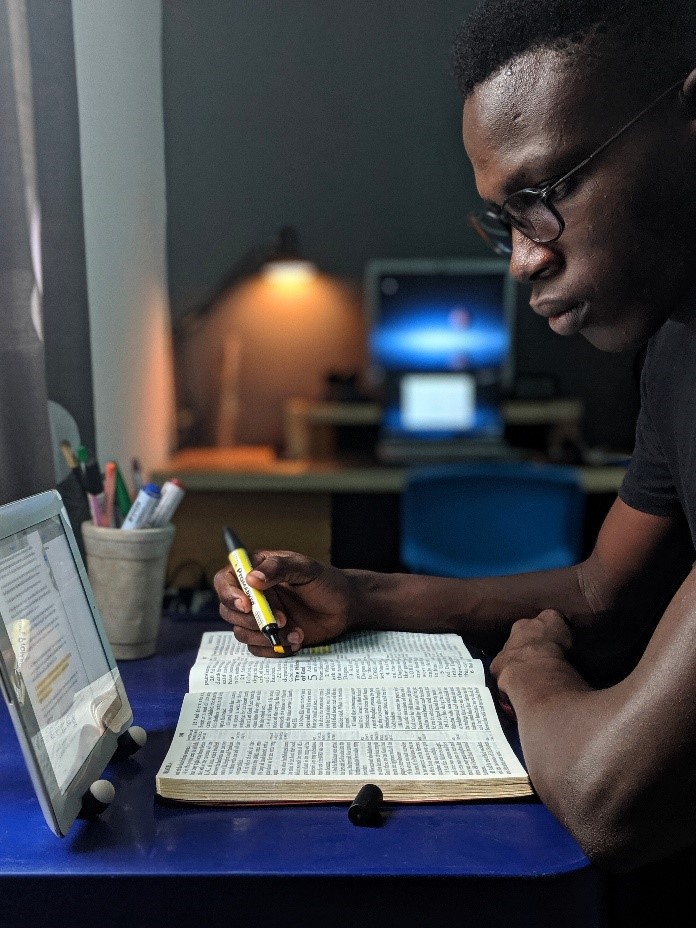BC’s curriculum is always evolving, and it’s important to stay updated with the expectations placed on students. On top of the many graduation requirements for high school students, the grade 12 literacy assessment is necessary for graduation. So, what is the grade 12 literacy assessment, and how can students prepare? Check out our top tips to get your graduate ready for the BC literacy assessment.
What is the BC Grade 12 Literacy Assessment?
The grade 12 literacy assessment is a test designed to promote literacy in students. It encourages students to showcase their literacy skills by analyzing, understanding, and responding to a variety of texts. The assessment focuses on using these literacy skills in realistic environments (home, employment, society) and not just academic settings.
 The assessment starts with the essential question—a broad question to provide context for the entire exam. Its goal is to stimulate students and help them think about the upcoming content.
The assessment starts with the essential question—a broad question to provide context for the entire exam. Its goal is to stimulate students and help them think about the upcoming content.
Part A of the assessment focuses on analyzing and understanding texts with an emphasis on critical thinking. Students will read a collection of texts and answer multiple-choice questions related to the texts. Part A also requires students to compose a written response to the texts.
Part B is split into two different pathways, and students will choose the one that best suits them. The first option is literacy for information, focusing on information-based texts such as news articles and scientific journals. The second option is literacy for expression, featuring a variety of texts exploring different modes of artistic expression. Both options are equal in difficulty, so students can safely choose the one that sounds more interesting to them. Like Part A, Part B has multiple-choice questions and a written response, but it puts a greater emphasis on personal response as opposed to objective response.
The grade 12 literacy assessment concludes with an opportunity for self-reflection, allowing students to consider the work they’ve done. This section isn’t graded, but self-reflection is a valuable practice in all aspects of life. This part of the assessment aims to help students get in the habit of reviewing their own work.
Best Ways to Practice for the Literacy Assessment
As of now, there aren’t any official, government-provided resources to help students prepare. But that doesn’t mean studying is impossible! There are plenty of great ways to get ready for the BC grade 12 literacy assessment.
Get Comfortable Reading
It sounds simplistic, but practicing reading is one of the best ways to study for the literacy assessment. Students are encouraged to read a variety of texts—news articles, blog entries, short stories, and even social media posts are all great.
When reading, it’s important to do so with a purpose. This means thinking deeply about what the text is focusing on and developing ideas about the themes within. To improve this skill, it can be beneficial to take notes, doodle something related, or read aloud. These activities will help students immerse themselves in the text and create strong connections.
Form an Opinion
While some pieces of text are purely informational, much of what we consume tries to convince us of something. Forming an opinion based on the ideas presented in a text is a critical skill, and it can be practiced.
Part B of the grade 12 literacy assessment requires students to convey their personal thoughts about a text. To help students prepare for this, parents can present an idea or opinion about anything and simply discuss it verbally. This encourages students to formulate their own thoughts and arguments, valuable tools to be used when responding to a text. The best part? This leads to deeper, more meaningful conversations between child and parent, and it doesn’t feel like studying!
Nothing is Perfect—Be Critical
Have you ever watched a movie and thought the ending was awful? How about a cheesy advertisement that made you want to avoid a product entirely? These are prime examples of how nothing is perfect and why it’s important to be critical.
We can apply the same criticism to pieces of writing. Students can examine a piece of text and make note of all the things they would’ve done differently if they were the author. This can help them become more confident in their own abilities while subconsciously improving their writing. It’s easier to criticize the work of others, and practicing criticism makes it easier to criticize one’s own work.
We Can Help!
At Tutoring…With a Twist*, our twisted tutors are excited to work with students preparing for the grade 12 literacy assessment. Whether your student needs help getting their ideas on the page or a boost of confidence to speak their mind, we can help!
Our certified English tutors will use a variety of techniques catered directly to the needs of your student. This will help them improve reading comprehension, hone their literary voice, and quell test anxiety. All of this is a recipe for a successful literacy assessment!
If you think your student could benefit from everything the twist has to offer, don’t hesitate to contact us. We’d love to hear from you!
Want to stay updated with everything in the world of education? Check out our Facebook page for more information.
*Services provided by With a Twist Education Ltd.

